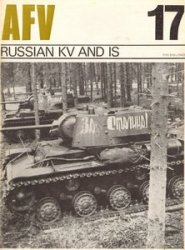The Bolshevik seizure of power in Petrograd (soon to be
renamed Leningrad after Lenin’s death in 1924) was only
the first, and not necessarily the most difficult, stage in
the Russian Revolution. Although the Bolshevik slogan
of “Peace, Land, and Bread” had earned considerable appeal
among workers, petty merchants, and soldiers in the
vicinity of the capital and other major cities, the party—
only fifty thousand strong in October—had little representation
in the rural areas, where the moderate leftist
Social Revolutionary Party received majority support
from the peasants. On the fringes of the Russian Empire,
ethnic minority groups took advantage of the confusion
in Petrograd to launch movements to restore their own
independence or achieve a position of autonomy within
the Russian state. In the meantime, supporters of the deposed
Romanov dynasty and other political opponents of
the Bolsheviks attempted to mobilize support to drive the
Bolsheviks out of the capital and reverse the verdict of
“Red October.” And beyond all that, the war with Germany
continued.
Lenin was aware of these problems and hoped that a
wave of socialist revolutions in the economically advanced
countries of central and western Europe would
bring the world war to an end and usher in a new age of
peace, socialism, and growing economic prosperity. In the
meantime, his first priority was to consolidate the rule of
the working class and its party vanguard (now to be renamed
the Communist Party) in Russia. The first step was
to set up a new order in Petrograd to replace the provisional
government that itself had been created after the
February Revolution. For lack of a better alternative, outlying
areas were simply informed of the change in government—
a “revolution by telegraph,” as Leon Trotsky
termed it. Then Lenin moved to create new organs of
proletarian power, setting up the Council of People’s
Commissars to serve as a provisional government. Lenin
was unwilling to share power with moderate leftists who
had resisted the Bolshevik coup in October, and he created
security forces (popularly called the Cheka, or “extraordinary
commission”), which imprisoned and sometimes
executed opponents of the new regime. In January
1918, the Constituent Assembly, which had been elected
on the basis of plans established by the previous government,
convened in Petrograd. Composed primarily of delegates
from the Social Revolutionary Party and other parties
opposed to the Bolsheviks, it showed itself critical of
the new regime and was immediately abolished.
In foreign affairs, Lenin’s first major decision was to
seek peace with Germany in order to permit the new government
to focus its efforts on the growing threat posed
by White Russian forces within the country. In March
1918, a peace settlement with Germany was reached at
Brest-Litovsk, although at enormous cost. Soviet Russia
lost nearly one-fourth of the territory and one-third the
population of the prewar Russian Empire. In retrospect,
however, Lenin’s controversial decision to accept a punitive
peace may have been a stroke of genius, for it gained
time for the regime to build up its internal strength and
defeat its many adversaries in the Russian Civil War
(1918–1920). The White Russian forces were larger than
those of the Red Army; they were supported by armed
contingents sent by Great Britain, France, and theUnited
States to assist in the extinction of the “Red menace”; but
they were also rent by factionalism and hindered by the
tendency of White Russian leaders to return conquered
land to the original landowners, thus driving many peasants
to support the Soviet regime. By 1920, the civil war
was over, and Soviet power was secure.




 World History
World History









